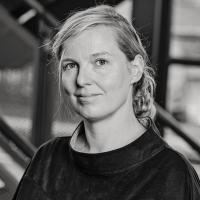New research project on Greenland's reconciliation process
In the summer of 2014, Greenland established a Reconciliation Commission with the aim to initiate acts of reconciliation with long-time colonial ruler Denmark. Astrid Nonbo Andersen's postdoctoral research aims to analyse the process and the social memories entailed by the process.
The project is funded by the Carlsberg Foundation and is affiliated to the Foreign Policy research unit at DIIS.
As the Greenlandic reconciliation commission might indicate a new model with which to deal with the colonial past, the process will also be studied in a global context.
The Greenlandic reconciliation process is linked to the ongoing discussions on the future political status of Greenland. No matter if it ends with an independent Greenland or a strengthened Commonwealth, the discussions on the colonial past and the relationship to Denmark will inevitably have an impact on the public opinion in Greenland. Moreover, the process will influence the relationship to Denmark and might even have consequences to other postcolonial societies around the world.
Where the process will lead is still to be seen, but the experiences made along the way in Greenland, will most likely have a larger impact. Both indigenous groups and societies working for greater degrees of autonomy or independence will keep an eye on the working methods, results and experiences made by the Reconciliation Commission.
Astrid Nonbo Andersen, PhD, is a historian of ideas and intellectual history. Her research focuses on the politics of history, social memory studies and the aftereffects of the past. A special focus of her research is on how the colonial past is remembered in Denmark and former Danish colonies, especially, the former Danish West Indies (the US. Virgin Islands), Tharangampadi and Greenland.
DIIS Experts

